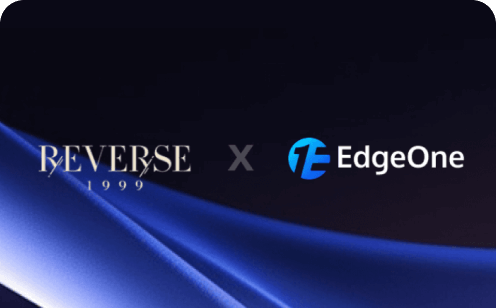Protecting the Gaming Industry: Effective Strategies Against Cyber Attacks
In recent years, the gaming industry has become a prime target for cyber attacks. Hackers see gaming companies as lucrative targets due to the vast amounts of personal and financial data they store, as well as the potential for disrupting online gameplay. In this article, we will explore some recent attacks on the gaming industry, common types of attacks, and solutions for preventing them.
Attacks on the gaming industry
- MGM Resorts & Caesars Entertainment: In 2023, Casino & Entertainment Giants MGM Resorts & Caesars Entertainment impacted by massive attacks by Scattered Spider.
- Blizzard:In 2022, The launch of Blizzard Entertainment's new free-to-play game, Overwatch 2, has been troubled as the company reported being hit with a massive DDoS attack that slowed down connections for players, making the game unplayable.
- Capcom: In 2020, the gaming giant Capcom suffered a ransomware attack that resulted in the theft of personal data from over 350,000 customers.
- Zynga: In 2019, the gaming platform Zynga was hacked, resulting in the theft of 218 million user records.
Why are cyber attackers target the gaming industry?
The gaming industry is particularly vulnerable to cyber attacks for several reasons. One of the main reasons is the large amount of personal and financial data that gaming companies store, including credit card information, email addresses, and login credentials. This data is highly valuable to hackers, who can use it for identity theft, financial fraud, and other malicious purposes.
Another reason why the gaming industry is targeted by hackers is the potential for disrupting online gameplay. Hackers can launch DDoS attacks to flood gaming servers with traffic, causing them to crash and preventing players from accessing the game. This can be done for financial gain, as hackers may demand payment to stop the attack, or as a form of protest or revenge.
In addition, gaming companies often have a large and diverse user base, which can make them more vulnerable to social engineering attacks. Hackers can use phishing emails or fake websites to trick players into giving up their login credentials or personal information.

5 types of cyber security attacks in gaming
The gaming industry is a prime target for cyber attacks, and there are several common types of attacks that gaming companies must be aware of in order to protect themselves and their players.
DDoS Attacks: Distributed Denial of Service (DDoS) attacks are one of the most common types of attacks on the gaming industry. These attacks flood a gaming company's servers with traffic, overwhelming them and causing them to crash. DDoS attacks can be launched by anyone with access to a botnet, making them relatively easy to carry out.
Phishing Attacks: Phishing attacks are another common type of attack on the gaming industry. Hackers use fake emails or websites to trick players into giving up their login credentials or personal information. Phishing attacks can be difficult to detect, as they often appear to be legitimate emails or websites.
Man-in-the-middle attacks: Man-in-the-middle (MITM) attacks are a type of cyber attack that intercepts and modifies communication between two parties without their knowledge or consent.These attacks intercept and modify communication between a player's device and a gaming server, allowing the attacker to steal personal information or manipulate gameplay.
Malware: Malware is a type of software that is designed to cause harm to a computer system. Gaming companies are often targeted with malware attacks, which can result in the theft of sensitive data, the disruption of online gameplay, and the installation of additional malware.
Account takeover attacks: Account takeover attacks are a type of cyber attack where an attacker gains access to a user's account without their permission or knowledge. These attacks involve stealing a player's login credentials, allowing the attacker to access their account and steal in-game items, virtual currency, or personal information.

5 Ways to Prevent Cyber Attacks
The gaming industry is a prime target for cyber attacks, but there are several effective solutions for preventing and mitigating these threats. Here are some common strategies for preventing network attacks in the gaming industry:
Implement Firewalls: Firewalls are an essential component of any network security system. They act as a barrier between a company's internal network and the internet, filtering out unwanted traffic and preventing unauthorized access to the network.
Keep software up to date: Ensure that all software, including games and operating systems, are up to date with the latest security patches. This can prevent attackers from exploiting known vulnerabilities in outdated software.
Use encryption: Encrypt all sensitive data, such as login credentials and payment information, to prevent unauthorized access. This can ensure that even if data is stolen, it cannot be read without the encryption key.
Multi-Factor Authentication: Multi-factor authentication (MFA) requires users to provide additional verification beyond just a username and password. This can include biometric data, like fingerprints or facial recognition, or a one-time code sent to a user's phone. MFA is an effective way to prevent unauthorized access to a gaming company's network.
Monitor network traffic: Monitor network traffic for suspicious activity and use intrusion detection and prevention systems to block potential attacks. This can help detect and prevent attacks before they can cause damage.
How to use Tencent Edgeone to Protecting the Gaming Industry?
The gaming industry faces various security threats, which require robust security measures to protect game servers and players' data. Additionally, to ensure a smooth and low-latency gaming experience, gaming companies need to provide acceleration capabilities such as TCP/UDP acceleration and content delivery networks (CDNs). These measures help to reduce latency and packet loss, and ensure a stable and fast connection between players and game servers.
Tencent Edgeone, the integrated solution, delivers robust suite of services for games, including acceleration, security, computing and scalable services. It provides the following advantages to help ensure swift and reliable game releases.
1. Safeguarding Game Availability:EdgeOne ensures uninterrupted gameplay with 15Tbps protection capacity using Anycast-based distributed defense and advanced AI-driven cleaning algorithms. It provides robust DDoS protection, WAF, and BOT management, safeguarding game servers and preventing exploitative cheating activities, thereby mitigating economic losses.
2. Handling Surge Traffic Seamlessly:EdgeOne's 200+ Tbps global reserve bandwidth and 3200+ PoPs, giving it a leading advantage in Layer 4 acceleration and cross-border acceleration. Enabling ultra-low latency delivery of online game downloads, software updates, and real-time gameplay to any device, ensuring gamers enjoy a consistently stable gaming experience. Its high availability under heavy loads prevents game latency or crashes due to concurrent traffic.
3. Effortless Operations Management:EdgeOne's all-in-one control panel seamlessly integrates underlying resources, boasting the most comprehensive log data including CDN, DDoS, and WAF information, allowing retention of complete request data for comprehensive analysis, enhanced issue identification, and pinpointing capabilities.
4. Mitigating Traffic Fraud:EdgeOne's anti-fraud solution(WAF+Bot Management+Rate Limiting) analyzes and monitors request traffic, identifying and blocking malicious access. This protection is vital in scenarios such as large gaming downloads, preventing excessive billing and ensuring smooth operations by effectively mitigating massive fraudulent activities.
We have now launched a free trial. Click here to start free trial or contact us for more information.

